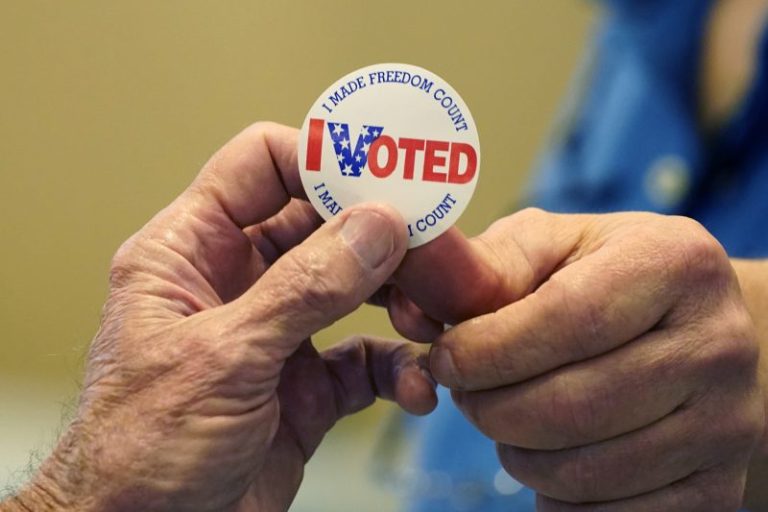A panel of federal judges heard arguments Tuesday in a case that could upend the rules for counting a sliver of mail ballots in Mississippi just weeks before Election Day, with possible ramifications for all states.
At issue is a Mississippi law that allows mail ballots to be counted if they arrive up to five days after Election Day and are postmarked by Election Day or earlier. Seventeen other states and Washington, D.C., have laws allowing postmarked mail ballots to be counted if they arrive after Election Day, according to the nonpartisan National Conference of State Legislatures.
The case in Mississippi is one example of a nationwide effort by Republicans to invalidate mail ballots over issues unrelated to whether they were cast by a legitimate voter. Republicans say they want to ensure states strictly follow voting laws, while Democrats and voting rights advocates say Republicans are trying to throw out otherwise valid votes because Democrats have disproportionately embraced mail voting.
Mississippi is a reliably Republican state that will not sway the presidential election. But the challenge to its law could ultimately make its way to the Supreme Court for a decision that affects the options available to all states. Such a ruling would have significant implications for the presidential race, as well as some closely fought congressional contests.
Republicans are fighting over mail ballots on many fronts even as the days dwindle until the November vote.
In Pennsylvania, a battleground state that could decide the presidential election, the Republican National Committee last week filed a lawsuit arguing that voters should not get a chance to fix errors on their mail ballots to make sure their votes get counted. Another lawsuit seeks to throw out mail ballots when their outer envelopes are undated or misdated, even if they arrive by Election Day. If voters aren’t able to fix their mistakes, tens of thousands of ballots could be thrown out in Pennsylvania.
“It is really a brazen voter suppression effort,” said Vic Walczak, legal director of the ACLU of Pennsylvania.
Gates McGavick, senior adviser to RNC Chairman Michael Whatley, dismissed that criticism. “The idea that widely-supported election integrity safeguards somehow constitute ‘voter-suppression’ is a far-left conspiracy theory,” McGavick said in a statement.
The RNC brought its lawsuit over the Mississippi law in January, arguing elections must be completed by Election Day because Congress has set a specific day for the election. A district court upheld Mississippi’s law in July, finding that Congress has not regulated mail ballots and has left states with “the authority and the constitutional charge to establish their lawful time, place, and manner boundaries.”
The RNC, joined by the Libertarian Party of Mississippi, appealed the case to the U.S. Court of Appeals for the 5th Circuit. The three judges who heard arguments Tuesday — all appointed by former president Donald Trump — asked probing questions about the history of voting laws and the definitions of “Election Day” and “casting” ballots.
“An election occurs when a voter expresses their choice,” said T. Russell Nobile, an attorney for the Libertarians. “They make it known and communicate it to election officials by a given time, and the given time is on or before Election Day.”
Donald Verrilli Jr., a former solicitor general representing the Democratic National Committee, compared Mississippi’s law with the federal government’s deadline for filing taxes.
“When you mail your tax payment in, so long as it’s postmarked by April 15th, you’ve paid your taxes on time, even though they arrive after April 15th,” he said.
Considering the case are Judges James C. Ho, Stuart Kyle Duncan and Andrew S. Oldham. They did not say how soon they would rule but noted that the U.S. Supreme Court has expressed reservations about courts changing voting rules in the run-up to an election.
The 5th Circuit is based in New Orleans and has jurisdiction over Mississippi, Louisiana and Texas. Its ruling will be binding in those three states and could undo Mississippi’s law as well as one in Texas that allows mail ballots that are postmarked by Election Day to be counted if they arrive by 5 p.m. on the day after Election Day.
The 18 states that allow mail ballots to be counted if they arrive after Election Day include the swing state of Nevada, Democratic bastions California and Illinois, and Republican strongholds Ohio and North Dakota.



